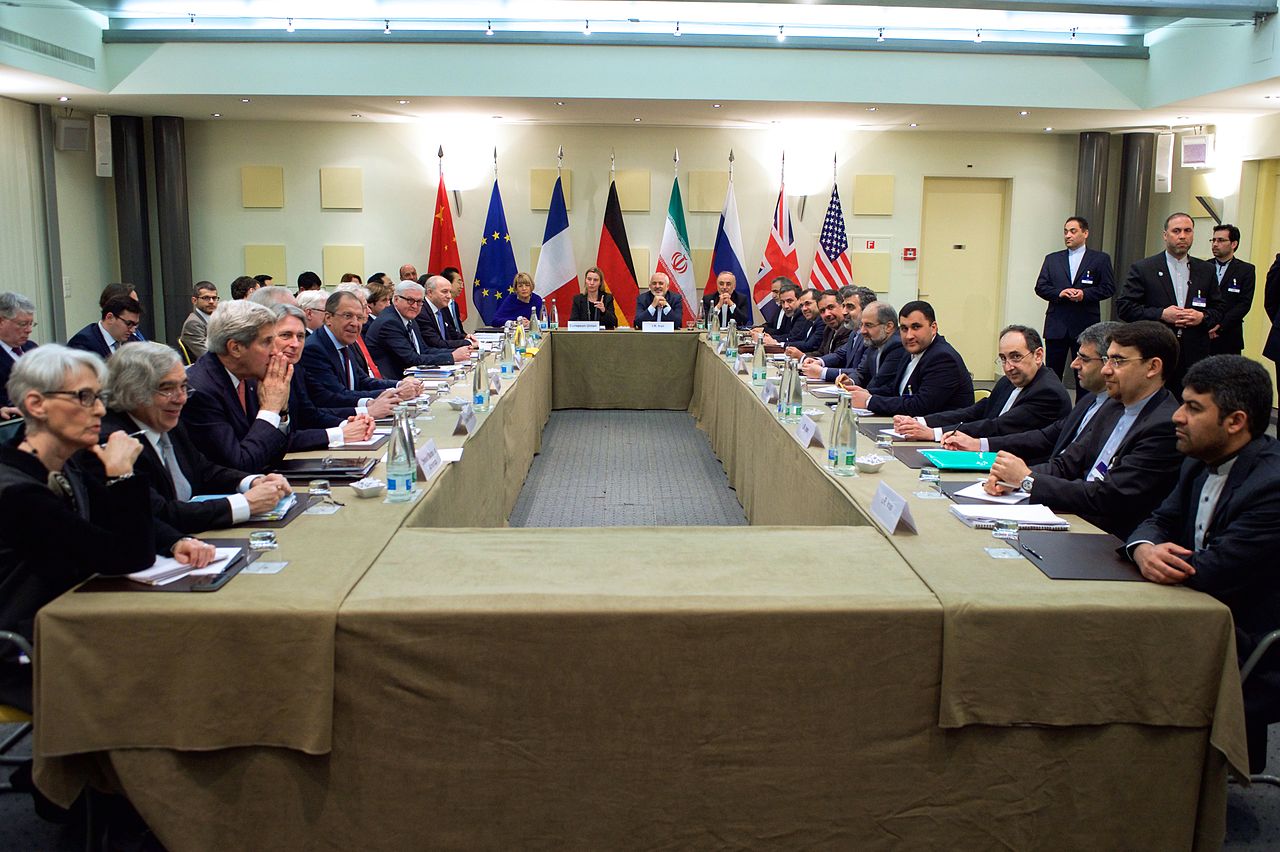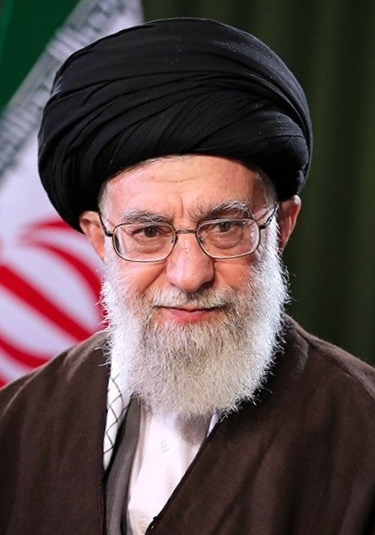A more dangerous world with Donald Trump
by Alex Davidson
Since Trump became President of the United States the world has become an even more dangerous place.
Trump’s withdrawal from the Iran nuclear deal; unequivocal support for Israel, its war crimes and recognition of Jerusalem as its capital; support for the Saudi Arabian devastation of Yemen; and the continuing undermining of Syria, including parts of the country being occupied by US forces, are just some of his actions which have made the Middle East an even greater powder keg.
IRAN NUCLEAR DEAL
When President Trump withdrew the U.S from the nuclear deal with Iran he was criticised by all of the other signatories to the deal, including Britain, France and Germany.
The 2015 agreement, the Joint Comprehensive Plan of Action (JCPOA), was signed by Iran and the 5 Permanent members of the U.N. Security Council (Britain, France, Russia, China and the United States) plus Germany (P5+1). The JCPOA limited Iran’s nuclear programme and allowed international inspectors into its facilities in return for the lifting of sanctions.
Trump regarded the deal with Iran as one-sided and “horrible” and as President he vowed to walk away from it. All the other signatories to the deal tried to persuade him and his administration to stick with the deal.
Federica Mogherini, EU Foreign Policy Chief, said “it was not in the hands of any single country” to terminate a deal that had been endorsed by a U.N. Security Council resolution and was “crucial” for world security. The deal had been struck when Barack Obama was U.S. President. But, walk away Trump did, despite the fact that Iran was complying with the agreement.
The International Atomic Energy Authority (IAEA) has said that it has the “world’s most robust verification regime in place in Iran” and its inspectors have certified 10 times since 2016 that Iran is fulfilling its nuclear related commitments under the JCPOA. Barack Obama said, “I believe that the decision to put JCPOA at risk without any Iranian violation of the deal is a serious mistake.”
Ayatollah Khamenei, Iran’s Supreme Leader, in response, called for the European powers to protect Iranian oil sales from U.S. sanctions and to continue to buy Iranian oil and for European banks to safeguard trade with Iran. If this does not happen Iran has threatened to resume its enrichment of uranium.
Khamenei added, “The Islamic Republic cannot deal with a government (U.S.) that easily violates an international treaty, withdraws its signature and in a theatrical show brags about its withdrawal on television.”
The European allies of the U.S. are very concerned about the U.S pulling out of the deal and the likely imposition of sanctions against those companies who continue to do business with Iran. In anticipation of Trump pulling the U.S. out of the deal many European companies pulled back from business with Iran in fear of their U.S. business being sanctioned.
The Russian company, Zarubezhneft, has signed a $700 million contract to develop two small fields that European oil companies, the UK’s BP and Germany’s Wintershall AG had hoped to be part of but are now unlikely to join due to U.S. sanctions.
Russian trade with Iran doubled to more than $2 billion in 2016, the year that sanctions were lifted by the nuclear deal.
Royal Dutch Shell, which had been negotiating with Iran to develop a giant oilfield there, decided in March the sanctions risk was too great. In May, China Petroleum and Chemical Corporation, or Sinopec, a huge Chinese state oil company, sent a delegation to Tehran to complete a $3 billion deal to develop the oilfield.
China National Petroleum Corp., another state-owned company, has an option for the $1 billion investment pledged by Total for a natural gas development in Iran that the French company is considering leaving because of U.S. sanctions. Patrick Pouyanné, Chief Executive of Total, said, “What would not be good neither for the U.S., nor for Europe, is if at the end only Russia and China can do business in Iran.”
China is by far Iran’s largest business partner, buying about 1/3 of its oil exports, bringing bilateral trade to a record $37 billion in 2017, up 19% from the previous year. China sees Iran as a trade corridor for its “One Belt. One Road” initiative.
ISRAEL
Israel was determined to break the Iranian nuclear deal and spent a lot of time and effort lobbying the Trump administration. In April, on the eve of Trump’s decision on the deal, Israel’s Prime Minister Netanyahu, in a carefully staged show, “revealed” Iranian files which the Israeli intelligence services claimed to have obtained. Netanyahu claimed that the files proved Iran had lied when denying the existence of a secret nuclear weapons programme before 2003.
The Observer newspaper reported (6 May 2018) that Trump associates had hired Black Cube, an Israeli private security firm, to carry out a “dirty ops” campaign against Ben Rhodes and Colin Kahl, top advisers to Barack Obama and his vice-president Joe Biden, in order to undermine the Iran nuclear deal.
Black Cube is an Israeli private intelligence agency, founded in 2010 and includes on its Board, Major General Giora Eiland, former head of the Israeli National Security Council. The company brings together “a select group of veterans from the Israeli elite intelligence units that specialises in tailored solutions to complex business and litigation challenges,” [i]
Black Cube used a fake company to make approaches to people associated with some of President Obama’s aides involved in the Iran deal with a view to discrediting them. The company initially denied any connection to the spying operation but The New Yorker reported that the same fake company was used to contact Rose McGowan, one of the principal accusers of the disgraced film tycoon, Harvey Weinstein. One of Weinstein’s lawyers had hired Black Cube to stop publication of sexual misconduct allegations. [ii]
The withdrawal of the U.S. from the Iran nuclear deal is a victory for Israel, which has long campaigned against the deal. Israel has been itching to attack Iran. It will now be preparing to attack Iran if that country resumes its nuclear programme.
In 2018 Israel used the F-35 fighter aeroplane in combat, the first country to do so. Air force Chief, Major-General Amikam Norkin said, “We are flying the F-35 all over the Middle East and have already attacked on two different fronts.” [iii] The F-35 is manufactured by the Lockheed Martin Corporation.
The U.S is not alone in supplying arms to Israel. Britain issued £221 million worth of arms licences to defence companies exporting to Israel in 2017. This is a huge increase from 2016, when it exported £86 million worth of arms, which already was a big increase from 2015, when it was £20 million. [iv]
Israel has felt emboldened by a number of factors:
- its overwhelming military capability over other countries in the Middle East, including the widely held view that it is a nuclear power;
- divisions in the Arab world especially between Saudi Arabia and Iran;
- the U.S. recognising Jerusalem as its capital and moving its Embassy there [v];
- its illegal occupation of Palestinian territory, its continuing expansion of settler communities; and its impunity in killing unarmed protesters in Gaza.
The US pulling out of the Iran nuclear deal has fired-up inter-capitalist rivalries, emboldened Israel and made the world even less safe.
[i] See website, www.blackcube.com Under the heading “Harvesting in the Cyber World” it claims that “Black Cube has developed innovative tools and methodologies to handle massive amounts of data. We unearth useful information for our clients and map all potential sources of interest by trawling the deep web and harvesting information from typically inaccessible areas of the internet such as the Dark Net”.
[ii] Guardian online, 8 May 2018.
[iii]Kubovich, Yaniv, “Israel launched World’s First Air Strike Using F-35 Stealth Fighters”. Haaretz
[iv]These figures were gathered by the Campaign Against the Arms Trade.
[v]Only Guatemala, Honduras, the Marshall Islands, Nauru, Palau and Togo voted with the U.S and Israel on the Jerusalem issue at the United Nations.

Lausanne, 30 March 2015: Federica Mogherini of the EU at the top table leading negotiations for a comprehensive agreement on the Iran nuclear programme. In attendance were: John Kerry - US; Javid Zarif - Iran, Sergei Lavrov - Russia; Wang Yi - china; Frank-Walter Steinmeier - Germany; Phillip Hammond - UK and Laurent Fabius - France.
" Israel was determined to break the Iranian nuclear deal and spent a lot of time lobbying the Trump administration.
Israel's Prime minister Benjamin Netanyahu, in a carefully staged show, "revealed" Iranian files which...(he) claimed proved Iran had lied when denying the existence of a secret nuclear weapons programme before 2003."

Ayatollah Khamanei






